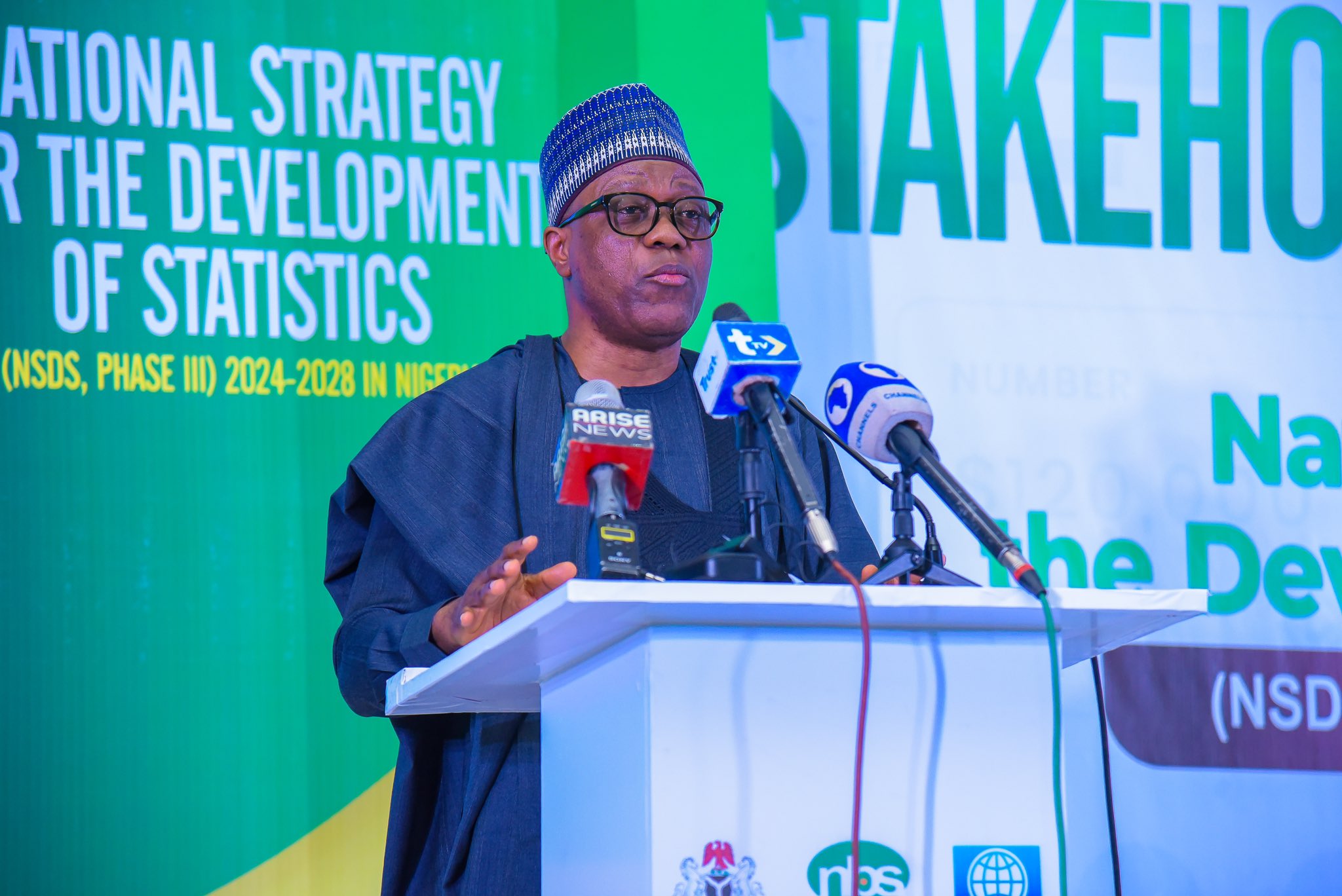NASC Data Will Revolutionalise Agricultural Landscape In Nigeria -Adeniran
By Sunday Etuka, Abuja

The Statistician General of the Federation, Prince Adeyemi Adeniran, has posited that the availability of comprehensive data on Nigeria’s agriculture would revolutionalise the sector.
Prince Adeniran stated this in his Welcome Address at the official launch of the National Agricultural Sample Census (NASC) Listing Results, on Monday in Abuja.
He said, the launch of the NASC results was particularly timely given the current global and national focus on food security, as well as the government’s drive towards enhancing sustainable local production to cater for the nation’s youthful and growing population.
According to him, it would also assist in attracting much-needed private sector investment into the agricultural landscape.
“The data will equip investors with the confidence and knowledge required to make informed decisions regarding agricultural ventures in Nigeria”, he added.
The NBS further stated that the results would serve as a vital benchmark for tracking progress toward achieving national and international agricultural development goals, including those outlined in the UN’s Sustainable Development Goals (SDGs).
He remarked that for over two and a half decades, the absence of comprehensive data on Nigeria’s agricultural sector has been a significant barrier to progress.
This gap, according to him, has limited the ability of policymakers, investors, and stakeholders to make more informed decisions that are critical to the sector’s growth, and overall food security in Nigeria.
However, he said, the conduct of the 2022 NASC exercise, the first of its kind in over 27 years, marks a turning point.
Adeniran said, with over 65 percent of the population directly or indirectly dependent on the agriculture sector for their daily sustenance, the NASC results offer invaluable insights into the very foundation of the nation’s agricultural sector, providing a detailed picture of:
“The size and structure of farm holdings,
Land use patterns and crop production practices, Livestock population and fisheries activities, and the use of agricultural inputs and technologies”.
He said, “the data gleaned from this census is more critical than ever. Viewing it from a statistical standpoint, the results provide major inputs into the ongoing rebasing of National Accounts, or the Gross Domestic Product (GDP), as we generally know it. It will further empower us to develop evidence-based solutions for pressing challenges.
“By understanding the current state of agriculture, we can design targeted policies and programs to address issues related to food security, promote sustainable agricultural practices, and enhance overall productivity”, he said.
The Statistician General said, the feat was achieved through the collaborative efforts of the NBS, the World Bank under the Fiscal Governance and Institutions Project (FGIP), the Food and Agriculture Organization of the United Nations (FAO), and the unwavering support of the Federal Ministry of Agriculture and Food Security.
He urged policymakers, stakeholders, and the private sector to actively utilize the information to make data-driven decisions and investments.
“Together, let us leverage the insights from the NASC to transform Nigeria’s agricultural sector into a robust engine for economic growth, sustainable development, and unwavering food security for our nation”, he added.






